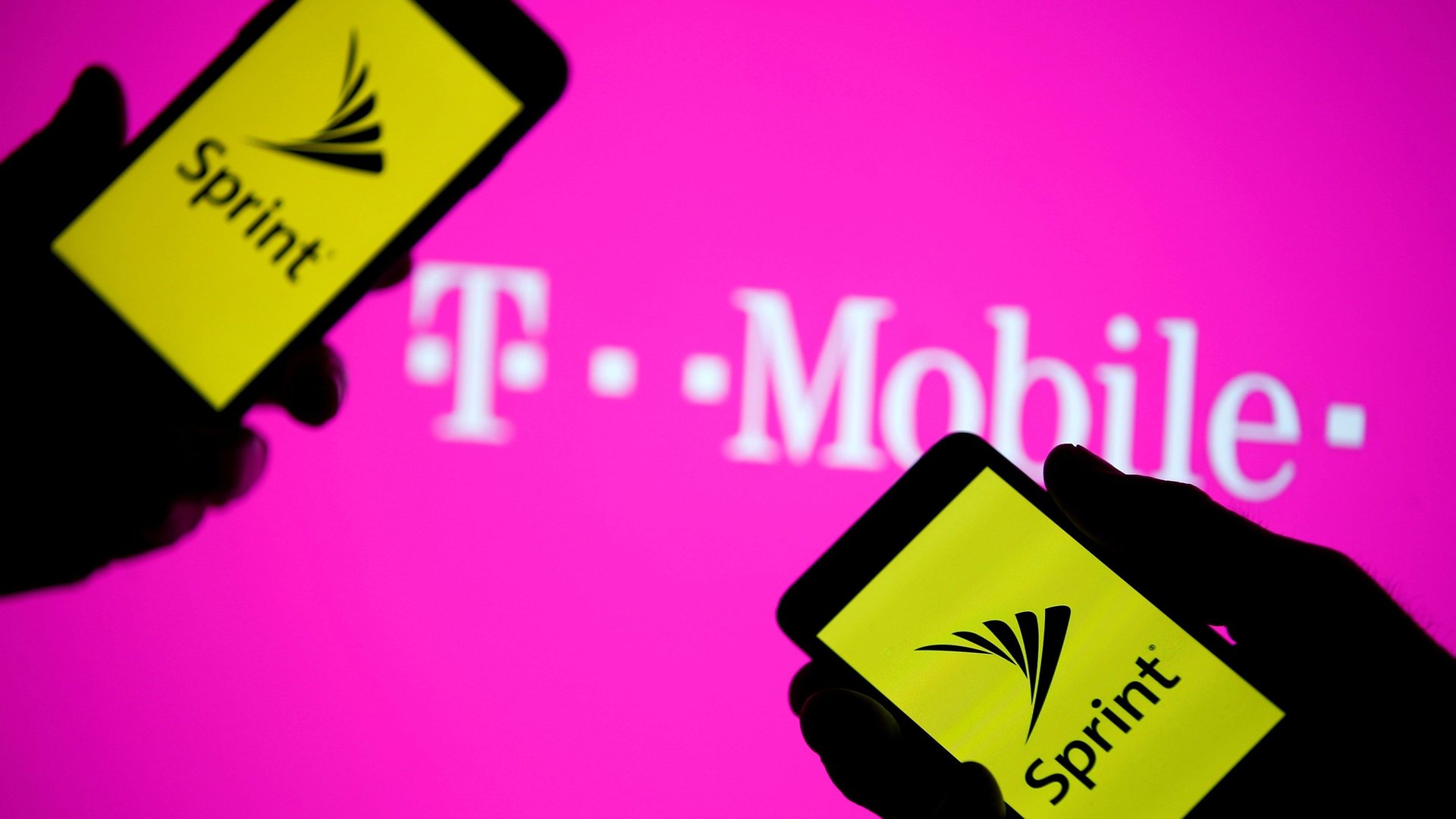Sprint and T-Mobile would do better if they merged offices, too
The impending $146 billion T-Mobile and Sprint merger has everyone wringing their hands about reduced competition (the US will now have only three major telecom companies). I think that the bigger concern should be that this merger could leave just two survivors: Verizon and AT&T.


The impending $146 billion T-Mobile and Sprint merger has everyone wringing their hands about reduced competition (the US will now have only three major telecom companies). I think that the bigger concern should be that this merger could leave just two survivors: Verizon and AT&T.
The vast majority of mergers fail. Not fail in that they don’t get approved, but rather in that they significantly reduce the value of the combined companies. Remember the AOL-TimeWarner merger (which led to a $200 billion loss)? Or the disastrous Vodafone-Mannesmann merger (a $38 billion loss)?
I think these disasters happen again and again because the merging companies only focus on two things: financials and processes. They ignore people, an arguably more critical piece of the puzzle.
In the case of AOLTimeWarner, the entire merger was predicated on the idea of realizing synergies between the AOL internet business and the Time Warner content business. But still, the two former companies remained on opposite coasts, and there was a huge cultural mismatch that prevented effective collaboration that would have helped realize those synergies.
Instead of creating a combined company culture, too often companies involved in mergers, like AOL and TimeWarner continue to operate like they belong to two separate entities.
There are a few ways to stave off this common doomsday scenario. The first is to co-locate divisions and teams that are supposed to integrate. This almost always includes the management team of both organizations, and it often also includes supporting functions like HR and IT.
Sprint and T-Mobile show no sign of co-locating. Sprint’s headquarters is in Kansas, while T-Mobile’s is in the Seattle area. The combined company appears poised to continue operating with two HQs, which would likely have a disastrous effect. Physical proximity is a necessary precondition for communication. By removing that support, the informal interactions and tacit knowledge-sharing that is so critical for success in complex technology organizations will suffer.
Merging companies should also make efforts to reduce cultural gaps. A few areas where these gaps tend to exist include companies’ approaches to diversity and inclusion, flexible working policies, and tool usage (email, Slack, project management software, etc). If women in one company are heavily excluded from meetings, while the other has an equitable approach, heavy attrition and low performance should be expected. Similarly, if one company allows people to work from home with no constraints and the other requires desk presence from 9 to 5, distrust and team cohesion will suffer. If people don’t even use the same tools to communicate, it will be nearly impossible for a global company to operate as one.
Aside from workplace policies, it’s important that the companies integrate socially. The goal is for the two companies’ people networks to eventually look like that of one company. While there is precious little research on this topic due to the difficulty of obtaining communication data from large enterprises, my company Humanyze has amassed one of the largest datasets on post-merger integration as our customers have acquired and merged with other organizations.
While our analytics team is working on a complete scientific analysis of these mergers, the data is clear: when companies take the steps outlined above, their networks merge more quickly and their performance generally improve faster than those that don’t. Collocation appears to have by far the strongest impact. In the companies we’ve examined, before acquisitions are physically brought into the fold, network integration is sporadic at best and company growth is anemic at best.
In a move away from social integration, Sprint recently announced that it is shifting key personnel to its parent company Softbank. This will likely change the communication network within Sprint, disconnecting different parts of the organization and making an effective integration that much more difficult.
Instead of further segmenting its network, Sprint should focus on helping it grow—by fusing it with T-Mobile.
Ben Waber is the president and CEO of Humanyze.